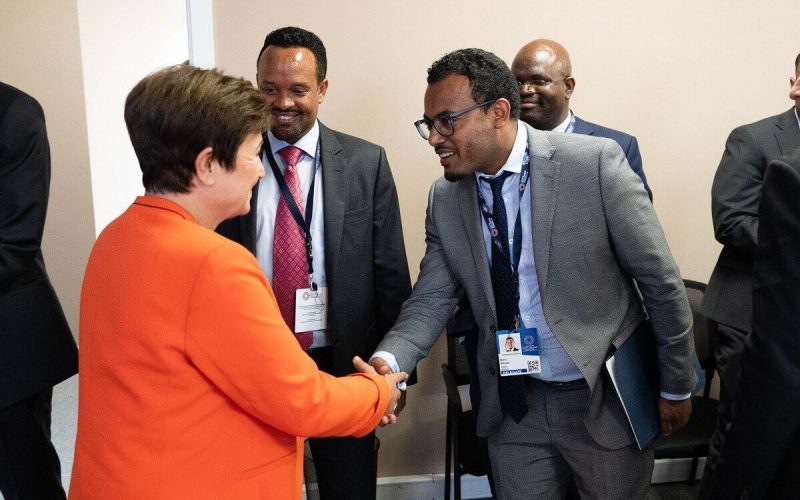Ethiopia’s ongoing financial challenges have come to the fore once again as it struggles to find common ground with the International Monetary Fund (IMF).
Ethiopian officials, including Finance Minister Ahmed Shede and National Bank Governor Mamo Mehretu, are currently engaged in discussions at the IMF Summit in Washington.
The primary agenda revolves around Ethiopia’s request for a substantial loan of $3.5 billion from the IMF.
However, securing this loan has proven to be a daunting task due to the stringent conditions set forth by the IMF.
One of the key stipulations put forward by the IMF is the requirement for Ethiopia to curb its purchasing power, a demand that has sparked considerable debate and controversy within the country.
Despite prolonged negotiations spanning over a year, Ethiopia and the IMF have yet to reach a consensus.
Even a recent visit by top IMF experts to Addis Ababa, where negotiations lasted for 15 days, failed to yield a breakthrough, resulting in an impasse.
Ethiopia’s financial woes extend beyond its interactions with the IMF. It stands as the third country, following Ghana and Zambia, unable to meet its loan obligations, notably the one billion euros borrowed through Eurobonds over a decade ago.
In response to criticisms, the Ethiopian government has defended its stance, asserting that the delay in Eurobond repayments is not due to financial insufficiency but rather a commitment to equitable treatment of all creditors.
The magnitude of Ethiopia’s debt burden is significant, totaling $29 billion in foreign loans, with a substantial portion owed to China.
In light of its financial strain, Ethiopia has sought extensions on loan repayment periods, a plea that has found little traction among creditors other than China and international lending institutions.
Amidst these financial challenges, there have been some positive developments. Just two weeks ago, Ethiopia secured an aid and loan agreement worth $1.72 billion with the World Bank.
A portion of this assistance, amounting to $850 million, will be allocated to various developmental projects within the country.
Notably, funds will be directed towards bolstering Ethiopia’s electricity infrastructure, enhancing food security, combating climate change, and improving access to clean drinking water, particularly in urban areas.
However, Ethiopia’s economic landscape remains fraught with obstacles. Ongoing conflicts, including the recently resolved war in northern Ethiopia facilitated by an African Union-mediated peace agreement, continue to disrupt stability.
Moreover, a separate conflict persists in the Amhara region, underscoring the persistent challenges facing the nation.
In addition to conflict, Ethiopia grapples with the impacts of the COVID-19 pandemic, climate change-induced disruptions, rising living costs, and the complexities of navigating global economic conditions.
